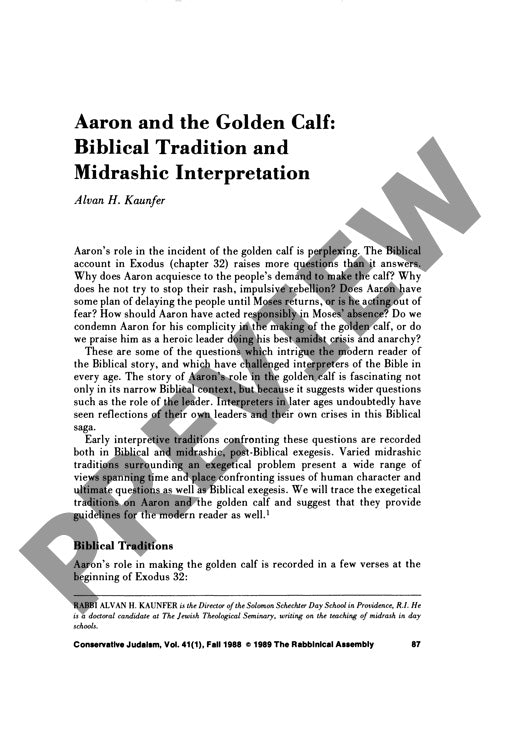Aaron and the Golden Calf Biblical Tradi
Couldn't load pickup availability
The Biblical narrative of Aaron and the golden calf presents a perplexing moral dilemma: how could the first High Priest of Israel participate in creating an idol while his brother Moses received the divine law? Through textual analysis of sources in Exodus, Deuteronomy, and Psalms, coupled with systematic examination of rabbinic midrashic traditions, striking patterns emerge in how religious authorities wrestled with this theological challenge. While the Biblical text itself remains ambiguous about Aaron's role—with Exodus providing minimal insight into his motivations and Deuteronomy condemning his actions outright—midrashic interpretations across various periods and collections reveal multiple attempts to contextualize his controversial decision. Most rabbinic traditions paint Aaron as either acting under duress after witnessing Hur's murder, strategically stalling until Moses' return, or nobly accepting blame to shield Israel from divine wrath. A minority of interpretations, however, maintain Aaron's culpability in fostering idolatry. This evolution in religious thought transforms Aaron from a problematic Biblical figure into a heroic leader navigating impossible circumstances, illuminating how interpretive traditions address both textual contradictions and enduring questions about leadership, moral responsibility, and crisis management that continue to resonate with contemporary readers.

More Information
-
Physical Description
-
Publication Information
Published 1988
ISBN
-
Publication Credits
Alvan Kaunfer

